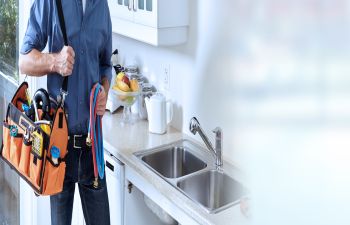
Although keeping tabs on the necessary pumping schedule for your septic tank is the most important step for optimal plumbing health, there are other factors to consider. The number of appliances you have hooked up to your plumbing system as well as how you use them can determine how “stressed out” your septic tank gets.
Washing machines, dishwashers, showers and baths are common appliances that use a large amount of water. When it comes to plumbing appliances and your septic tank, timing is everything. When you use them at the same time, the magnitude of water that gets drained into your tank could disrupt the solids at the bottom. Once these solids are stirred, the function of your drain field is compromised and the risk for a clogged system is greater. It is perfectly fine to have all of these appliances hooked up, but try to space out the timing of how you use them. This allows a proper amount of water flow and drainage that your septic system can handle.
Another appliance to keep an eye on is your garbage disposal. These appliances provide huge convenience to the homeowner, but they can wreak havoc on your septic tank. A disposal puts more solids into your tank, which means you’ll have to pump it much more frequently or even deal with a blocked system. For many people, this is not worth the extra daily convenience that a garbage disposal can provide.
If you are unsure about the way your appliances or family plumbing habits are affecting your septic tank, please give us a call at Metro Septic. We can not only assess the health of your system, but also recommend ways to extend the life of your tank.

